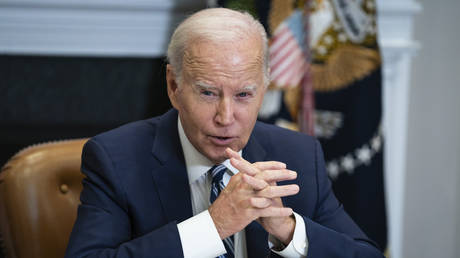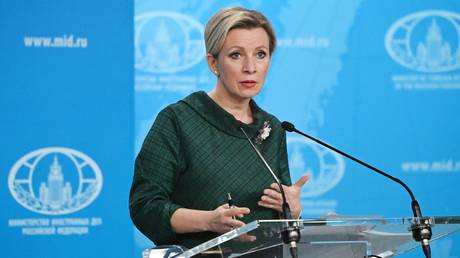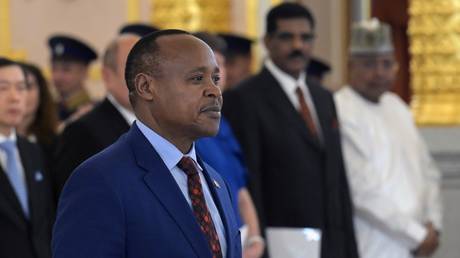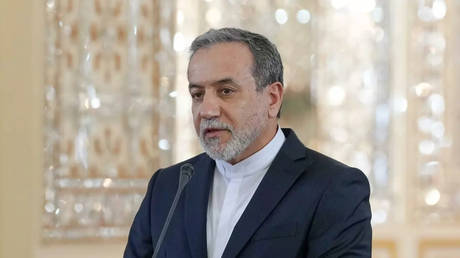North Korean forces potentially joining the war in Ukraine would be a major escalation.
Kim Won Jin/AFP via Getty Images
North Korea fighting alongside Russia would be a serious escalation to the Ukraine war.NATO and Western allies are facing pressure to respond — but have historically been hesitant.Experts criticized a lack of decisive Western strategy in countering the threat.
Western allies have options to react to the threat of North Korean troops in Russia, but are hamstrung by fears of escalation, military experts told Business Insider.
On Monday, the Pentagon said that 10,000 North Korean troops had been shipped to Russia for training and were likely to join Russian forces “over the next several weeks.”
NATO chief Mark Rutte said that some troops are already in Kursk, calling the move “a significant escalation.” He added that it is “yet another” contravention of UN Security Council resolutions.
He said the bloc is “actively consulting” on what to do next. Despite these statements — and a similar chorus of condemnation from Western governments — few commitments have been made.
On Wednesday, Ukrainian President Volodymyr Zelenskyy expressed frustration, saying that his allies’ response was “not so loud as it has to be” in reaction to the North Korean threat, Politico reported.
“Till now, we heard some reactions, but it is not strong enough,” he added.
A watershed moment?
In itself, 10,000 more troops in Russia’s war in Ukraine is not a game changer, Patrick Bury, a military analyst at the UK’s University of Bath, told BI. The troops, many with no experience in real war situations, could also be of limited help.
There is reason, however, to imagine the numbers could rise.
North Korea has steadily ramped up its cooperation with Russia, reportedly supplying half of all artillery shells used in Ukraine in the last year.
North Korean leader Kim Jong Un has the fourth-largest standing army in the world, so there is no shortage of troops. Crucially, experts consider his regime to be receiving an economic and technological lifeline in exchange.
Edward Hunter Christie, a former NATO official and a research fellow at the Finnish Institute of International Affairs, described the dangers of the partnership as “a much more serious test of resolve for the West than most people currently realize.”
He added: “There’s a reluctance to act.”
This at least means there will be no rash decisions, he said.
Hunter, along with other experts BI spoke to, described a hesitancy and fear of escalation among Ukraine’s biggest Western partners that amounts to a lack of overall strategy.
The West has some options — and a history of slapping them down
When it comes to options for the US and Europe, “the tools are the same tools that have been there all along,” Richard Fontaine, CEO of the Center for a New American Security, told Bloomberg.
That includes the ad-hoc trickling through of aid packages like one recently announced by Norway.
It also includes things that have long been ruled out, like allowing Ukraine to make long-range strikes in Russia with Western-supplied missiles.
A bipartisan group in Congress has called on Biden to allow Poland to intercept Russian missiles in Ukrainian airspace, The Hill reported. It’s a move that NATO’s former chief Jens Stoltenberg had earlier ruled out, saying it would risk the alliance “becoming part of the conflict,” the outlet reported.
South Korea, too, has said it is considering sending military aid directly to Ukraine. It’s an unprecedented move that could prove highly beneficial, but which the state is hesitant to make, experts told BI.
Lithuania’s foreign minister, Gabrielius Landsbergis, has also revived a suggestion made in February by France’s President Emmanuel Macron of not ruling out the deployment of NATO troops in Ukraine, in support roles.
“We are still on the back foot, reacting to escalation instead of reversing it,” Landsbergis wrote on X. “Macron’s ideas should now be revisited.”
That idea was earlier publicly slapped down by Germany’s Chancellor, Olaf Scholz.
Such a move “would free up a lot of resources for Ukraine,” said Ann Marie Dailey, a geopolitical strategist at RAND.
It would also send an important signal to Russia, she said: “That they don’t have dominance on the escalation ladder.”
The escalation trap
President Joe Biden’s administration — along with much of Western Europe — has largely avoided actions that could be seen as escalating the conflict.
The fact that now a serious escalation looks possible thanks to North Korea is an indication of the failure of that policy, Hunter told BI.
The US presidential election and the impending change of administration also puts a chilling effect on any dramatic changes in policy for the coming months, he said.
“We live in an age of US-led hesitancy within the Western world, which just keeps on failing us, which just keeps on increasing the level of danger to the security of the collective West,” he said.
The bind for the Biden administration is not only in dealing with two nuclear states, but also that North Korea’s belligerence could cause the conflict to spill over toward its southern neighbor and damage relations with China.
Western states are likely to have been quietly hoping that China might step in diplomatically and dissuade North Korea, Hunter said.
At some point, the West has to react decisively, he argued.
Dailey told BI: “The problem with having a strategy of de-escalation is that if that is your stated strategy, you’ve already ceded every step on the escalation ladder to the enemy.”
In Bury’s view, the West’s problem is that it cannot even agree on its broader strategy, let alone decide how to implement it.
“The broader point here is: the West, we’re not doing the strategy,” he said. “We’re muddling through.”





+ There are no comments
Add yours